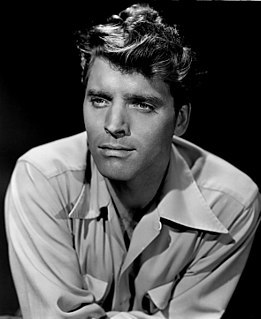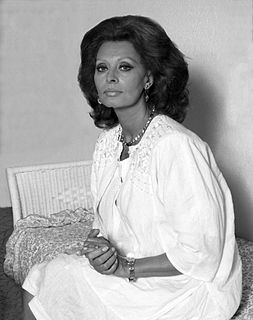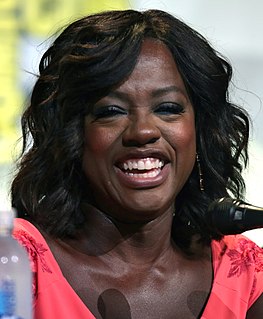Related Research Articles

Burton Stephen Lancaster was an American actor and producer. Initially known for playing tough guys with a tender heart, he went on to achieve success with more complex and challenging roles over a 45-year career in film and, later, television. He was a four-time nominee for the Academy Award for Best Actor, and he also won two BAFTA Awards and one Golden Globe Award for Best Lead Actor. The American Film Institute ranks Lancaster as #19 of the greatest male stars of classic Hollywood cinema.

The cinema of Italy comprises the films made within Italy or by Italian directors. Since its beginning, Italian cinema has influenced film movements worldwide. Italy is one of the birthplaces of art cinema and the stylistic aspect of film has been the most important factor in the history of Italian film. As of 2018, Italian films have won 14 Academy Awards for Best Foreign Language Film as well as 12 Palmes d'Or, one Academy Award for Best Picture and many Golden Lions and Golden Bears.

Roberto Gastone Zeffiro Rossellini was an Italian film director, producer, and screenwriter. He was one of the most prominent directors of the Italian neorealist cinema, contributing to the movement with films such as Rome, Open City (1945), Paisan (1946), and Germany, Year Zero (1948).

Sofia Costanza Brigida Villani Scicolone, known professionally as Sophia Loren, is an Italian actress. She was named by the American Film Institute as one of the greatest female stars of Classical Hollywood cinema. As of 2022, she is one of the last surviving major stars from the Golden Age of Hollywood cinema and is the only remaining living person on AFI's list.

The cinema of Australia had its beginnings with the 1906 production of The Story of the Kelly Gang, arguably the world's first feature film. Since then, Australian crews have produced many films, a number of which have received international recognition. Many actors and filmmakers with international reputations started their careers in Australian films, and many of these have established lucrative careers in larger film-producing centres such as the United States.
The decade of the 1970s in film involved many significant films.

Diahann Carroll was an American actress, singer, model, and activist. She rose to prominence in some of the earliest major studio films to feature black casts, including Carmen Jones (1954) and Porgy and Bess (1959). In 1962, Carroll won a Tony Award for Best Actress in a Musical, a first for an African-American woman, for her role in the Broadway musical No Strings. In 1974 she starred in Claudine alongside James Earl Jones for which she was nominated for an Academy Award for Best Actress.

Claudine is a 1974 American romantic comedy-drama film, produced by Third World Cinema and distributed by 20th Century Fox, starring James Earl Jones, Diahann Carroll, and Lawrence Hilton-Jacobs. Claudine was written by Lester Pine and Tina Pine, and directed by John Berry. The film was released on April 22, 1974, grossing about $6 million, a modest hit for the times. It was praised for showing a new dimension in black cinema during the height of blaxploitation.

The film industry or motion picture industry comprises the technological and commercial institutions of filmmaking, i.e., film production companies, film studios, cinematography, animation, film production, screenwriting, pre-production, post production, film festivals, distribution, and actors. Though the expense involved in making films almost immediately led film production to concentrate under the auspices of standing production companies, advances in affordable filmmaking equipment, as well as an expansion of opportunities to acquire investment capital from outside the film industry itself, have allowed independent film production to evolve.

The cinema of Nigeria, often referred to informally as Nollywood, consists of films produced in Nigeria; its history dates back to as early as the late 19th century and into the colonial era in the early 20th century. The history and development of the Nigerian motion picture industry is sometimes generally classified in four main eras: the Colonial era, Golden Age era, Video film era and the emerging New Nigerian cinema.

Pamela Suzette Grier is an American actress. Described by Quentin Tarantino as cinema's first female action star, she achieved fame for her starring roles in a string of 1970s action, blaxploitation, and women in prison films for American International Pictures and New World Pictures. Her accolades include nominations for an Emmy Award, a Golden Globe Award, a Screen Actors Guild Award, a Satellite Award, and a Saturn Award.

William Greaves was an American documentary filmmaker and a pioneer of film-making. He produced more than two hundred documentary films, and wrote and directed more than half of these. Greaves garnered many accolades for his work, including four Emmy nominations.
The Black Reel Awards, or BRAs, is an annual American awards ceremony hosted by the Foundation for the Augmentation of African-Americans in Film (FAAAF) to recognize excellence of African Americans, as well as the cinematic achievements of the African diaspora, in the global film industry, as assessed by the foundation’s voting membership. The various category winners are awarded a copy of a statuette, officially called the Black Reel Award. The awards, first presented in 2000 in Washington, DC, are overseen by FAAAF.
The American Black Film Festival is an independent film festival that focuses primarily on black film—works by Black members of the film industry. It is held to recognize achievements of film actors of African descent and to honor films that stand out in their portrayal of Black experience.

The race film or race movie was a genre of film produced in the United States between about 1915 and the early 1950s, consisting of films produced for black audiences, and featuring black casts. Approximately five hundred race films were produced. Of these, fewer than one hundred remain. Because race films were produced outside the Hollywood studio system, they were largely forgotten by mainstream film historians until they resurfaced in the 1980s on the BET cable network. In their day, race films were very popular among African-American theatergoers. Their influence continues to be felt in cinema and television marketed to African Americans.

Claudine Margaret Castelo Barretto is a Filipino actress, singer, and entrepreneur.

Viola Davis is an American actress and producer. The recipient of various accolades, including an Academy Award, a Primetime Emmy Award, and two Tony Awards, she is the only African-American to achieve the Triple Crown of Acting. Time magazine named her one of the 100 most influential people in the world in 2012 and 2017, and in 2020, The New York Times ranked her ninth on its list of the greatest actors of the 21st century.

Octavia Lenora Spencer is an American actress. She is the recipient of several accolades, including an Academy Award, a Golden Globe Award, and three Screen Actors Guild Awards. She is one of two women of color to have received three Oscar nominations and the first black actress to receive two consecutive nominations.
The presence of African Americans in major motion picture roles has stirred controversy and been limited dating back decades due to lingering racism following slavery and segregation. "Through most of the 20th century, images of African-Americans in advertising were mainly limited to servants like the pancake-mammy Aunt Jemima and Rastus, the chef on the Cream of Wheat box." While African American representation in the film industry has improved over the years, it has not been a linear process; "Race in American cinema has rarely been a matter of simple step-by-step progress. It has more often proceeded in fits and starts, with backlashes coming on the heels of breakthroughs, and periods of intense argument followed by uncomfortable silence."

African American cinema is loosely classified as films made by, for, or about Black Americans. Historically, African American films have been made with African-American casts and marketed to African-American audiences. The production team and director were sometimes also African American. More recently, Black films featuring multicultural casts aimed at multicultural audiences have also included American Blackness as an essential aspect of the storyline.
References
- ↑ "Independent Film". Film Reference. Retrieved 27 February 2019.
- ↑ Cinema Scope|A Pierce of the Action: On Claudine and Uptight
- ↑ In praise of Claudine, a '70s romantic rom-com with a conscience|AV Club
- ↑ 'Claudine', Funny Film With Realities of Harlem Life - The New York Times
- ↑ Claudine (1974)|The Criterion Collection
- ↑ Lev, Peter (2010). American Films of the 70s: Conflicting Visions. University of Texas Press. p. 248. ISBN 9780292778092 . Retrieved 27 February 2019.
- ↑ Mapp, Edward (2008). African Americans and the Oscar: Decades of Struggle and Achievement (Second ed.). Scarecrow Press. p. 218. ISBN 9780810861060 . Retrieved 27 February 2019.